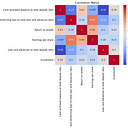Deduction and Induction in Economics: An Overview
In the field of economics, two fundamental methods for reasoning are used: deduction and induction. These methods are not exclusive and can be used in conjunction with each other. Deductive reasoning moves from general statements to more specific ones, while inductive reasoning moves from specific observations to more general conclusions.
Deductive reasoning is often associated with logic and is used to form syllogisms. The syllogism relates premises to conclusions, where if the premises are true and no fallacies are committed, then the conclusion is also true. In contrast, inductive reasoning often has true premises, but we cannot be certain that the conclusions derived from them are true. This is because inductive reasoning is ampliative, meaning that the conclusions go beyond the information contained in the premises.
Inductivism is an approach that emphasizes observation and empirical work as the primary means of attaining knowledge. This methodological approach was popularized by Sir Francis Bacon in the early 1600s. Bacon argued that many deductive philosophers tended to ponder on esoteric problems and were not interested in practical applications. In contrast, Bacon wanted science to be practical and helpful to mankind.
Bacon identified four Idols that can interfere with our objectivity when studying nature. These Idols are phantoms of the mind that can result in distorted results and conclusions. They are the Idols of the Tribe, Cave, Marketplace, and Theater. The Idol of the Tribe refers to the natural tendencies of humans to make hasty generalizations. The Idol of the Cave refers to the subjective biases of the individual researcher. The Idol of the Marketplace refers to the influence of language and communication on research. Finally, the Idol of the Theater refers to the influence of established philosophical and scientific systems on research.
While inductivism emphasizes empirical work, it is important to note that induction is not a necessary condition for being an inductivist. Many economists use induction in their statistical work without embracing the complete inductivist package. Instead, the inductivist approach subordinates conceptual considerations.
Deductivism, on the other hand, emphasizes the use of formal logic and conceptual analysis to reason about economic phenomena. This approach is often associated with the work of Karl Popper, who argued that scientific theories can never be proven but can only be falsified through empirical testing. Deductivists believe that economic theory should be built on a foundation of logically derived axioms, which can then be used to derive hypotheses that can be tested through empirical observation.
In conclusion, both inductive and deductive reasoning are essential tools in the field of economics. While inductivism emphasizes empirical work and observation, deductivism emphasizes conceptual analysis and formal logic. However, it is important to note that these methods are not mutually exclusive and can be used in conjunction with each other to gain a more complete understanding of economic phenomena.
